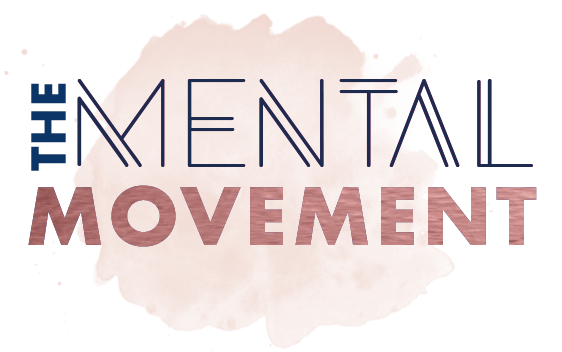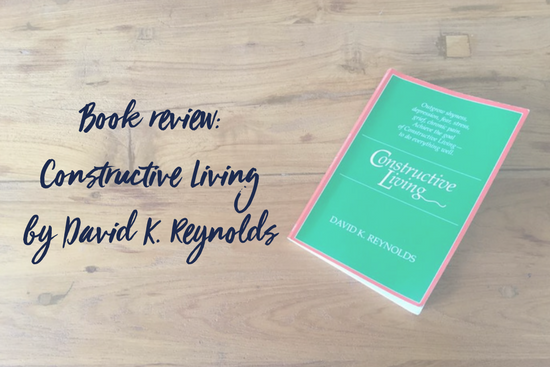I’m not sure how I came across this book, Constructive Living by David K. Reynolds, most likely the fantastic podcast that is The One You Feed. But when I was looking for something interesting but not too voluminous to take on holiday recently, it called to me from the shelf.
Constructive Living is an over-arching principle and program inspired and adapted from the Japanese Morita Therapy, which advocates accepting our feelings in any moment and taking purposeful action regardless.
The concepts discussed in the book are neither uniquely original nor revelatory but I enjoyed the fact that they’re articulated in a very real, down to earth, direct and no-nonsense way.
I generally find a sense of relief and often amusement when I’m led to realise that my historic ways of thinking have been totally flawed and this book touched that nerve for me.
My highlights
Here are some of the points made in Constructive Living that I particularly enjoyed that I thought you might like too:
- Thoughts and subsequent feelings only have the ability to disturb or affect us when they are noticed, when we give them attention. “When you don’t focus on your depressed thoughts and feelings, you’re not depressed.”
- An interesting description of maturity – going about doing what needs to be done regardless of whether you feel great or terrible. The awareness that you have this level of self-control inspires satisfaction and confidence.
- Feelings are not controllable therefore we cannot be morally responsible for them. You aren’t a bad person nor are you wrong for feeling a certain way. “It’s not necessary to feel guilty about feeling depressed. Of course, if you do feel guilty about feeling depressed, that’s all right. You don’t have to feel guilty about feeling guilty about feeling depressed. But if you do, you do.” A reminder that there’s no need to shoot the second (or third, or fourth) arrow.
- Our feelings might not be fully within our control but they can be influenced by our behaviour. “You can use your behaviour to beckon desirable feelings and reduce the influence of undesirable ones. Here is the handle on our moods that life has supplied.” Even the smallest positive ripple can, with constructive activity, be ridden towards more pleasant feelings and a lighter mood.
- We may not be responsible for our feelings but we are certainly responsible and in control of our actions. “A lot of people find it easier to give in and let their feelings control their behaviour much of the time.”
- More thinking, intellectualising, analysing and imagining will rarely change the way we feel or what happens in the future. “Action – in the present – changes the future. A trip of ten thousand miles starts out with one step, not with a fantasy about travel.”
- We always have the opportunity to find meaning and a spur towards positive action in any situation.
- Real vs imagined limits – there are certainly things in life that we can’t change or control but there are many others which are far from impossible to shift that we allow to hold us back. “….be clear on what is possible but difficult, as opposed to what is truly impossible.”
- The importance of stable and regular anchor points which support our wellbeing – the most important of which are eating, exercising and sleeping. “Erratic uncontrolled lifestyles produce erratic uncontrolled people.”
- “You don’t need confidence.” We often feel we need to wait until conditions are just right, until we feel good enough or motivated enough or that success is guaranteed. These are imagined, convenient but not real pre-requisites for action.
So, as always, I hope you’ve found something here interesting and/or useful. Perhaps it’s whet your appetite and you now fancy reading the book yourself – go on, it’s only 100 pages!
I want to end with perhaps my favourite paragraph from the book….
“Reality keeps bringing us circumstances – sometimes I picture them as waves breaking on the shore – and we have the chance to keep merging with that reality, to fit ourselves to it, to dive into those waves. If we simply stand and let the waves crash over us, if we mistime our dive or plunge at the wrong angle or try to flee from the waves, we get battered around by their force. But a clean dive sets us up for facing the next series of waves. Afraid or not, we dive into the wave. Hurting or not we dive. Weak or not we dive. In time the biggest breaker holds no fear for us, because our perceptions are sharp and our diving skills are sufficient for even the tidal wave of death.”
Happy diving.
Hey there, in case you didn’t know, I’m Hana and I could be your Personal Mindset Coach.
I’m occasionally known to my clients as ‘the lovely stranger’.
I’m here to help you see things from a different perspective, to choose a different lens, to find different ways of thinking, being and doing – so that you can get out of your head and just get on with living a bloody great life.
If you’d like some support exploring this or other fascinating things about you further, then drop me an email at [email protected], and we can arrange a cuppa some time to find out if we might like each other enough to work together.
If you like what you’ve read and want more then how’s about downloading my free ‘Where’s your head at?’ ebook – get it right here.
Take care and keep enjoying the journey.
Hana


